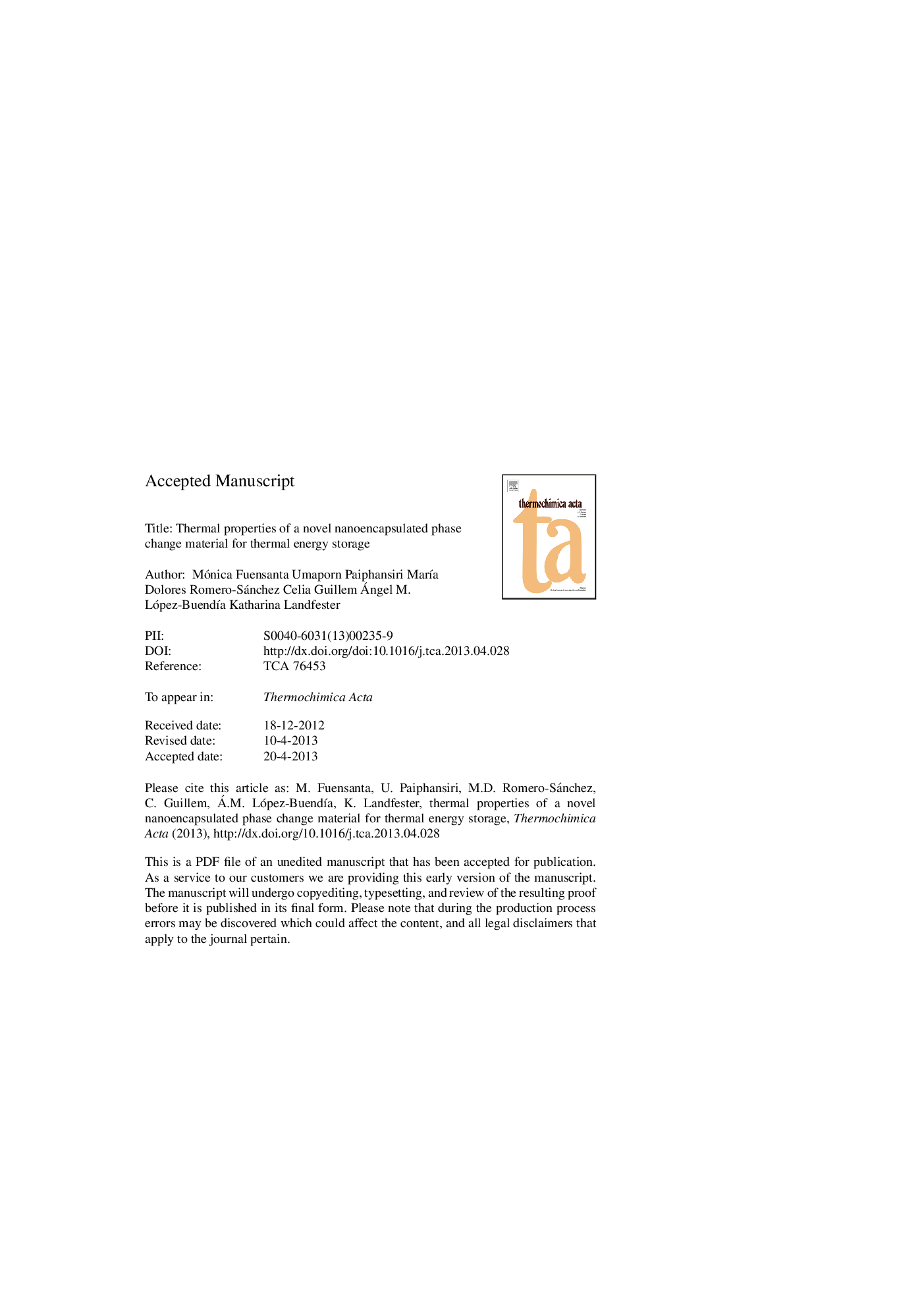| Article ID | Journal | Published Year | Pages | File Type |
|---|---|---|---|---|
| 7062426 | Thermochimica Acta | 2013 | 26 Pages |
Abstract
A novel nanoencapsulation of a paraffine type phase change material, RT80, in a styrene-butyl acrylate copolymer shell using the miniemulsion polymerization process was carried out. General characteristics of the RT80 nanoparticles in terms of thermal properties, morphology, chemical composition and particle size distribution were characterized by Differential Scanning Calorimetry (DSC), Thermal Gravimetric Analysis (TGA), Scanning Electron Microscopy (SEM), Transmission Electron Microscopy (TEM), Fourier Transform Infrared Spectroscopy (FT-IR) and Dynamic Light Scattering (DLS). The influence of different monomers (styrene, butyl acrylate) and the surfactant/paraffin mass ratios on nanoparticles properties such as thermal capacity, particle size and morphology were systematically investigated. In all cases studied, encapsulation efficiency was close to 80 wt% with a particle size distribution between 52 and 112 nm and regular spherical shape and uniform structure. The amount of encapsulated paraffin achieved was comprised between 8 and 20%. Melting and crystallization heats were found to be approximately 5-25 J gâ1, mainly depending on surfactant/paraffin mass ratio. Melting temperature of RT80 nanoparticles slightly decreased (1-7 °C) respect to the raw RT80. In addition, the encapsulated RT80 nanoparticles show thermal stability even after 200 thermal (heat-cooling) cycles.
Keywords
Related Topics
Physical Sciences and Engineering
Chemical Engineering
Fluid Flow and Transfer Processes
Authors
Mónica Fuensanta, Umaporn Paiphansiri, MarÃa Dolores Romero-Sánchez, Celia Guillem, Ángel M. López-BuendÃa, Katharina Landfester,
